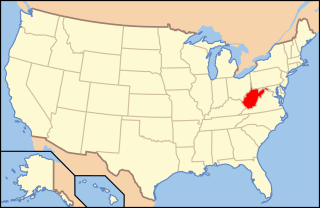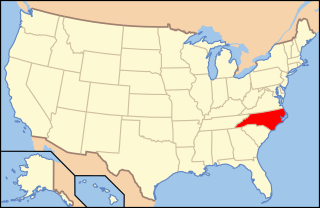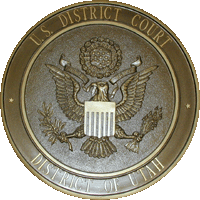Related Research Articles
An Internet filter is software that restricts or controls the content an Internet user is capable to access, especially when utilized to restrict material delivered over the Internet via the Web, Email, or other means. Such restrictions can be applied at various levels: a government can attempt to apply them nationwide, or they can, for example, be applied by an Internet service provider to its clients, by an employer to its personnel, by a school to its students, by a library to its visitors, by a parent to a child's computer, or by an individual user to their own computers. The motive is often to prevent access to content which the computer's owner(s) or other authorities may consider objectionable. When imposed without the consent of the user, content control can be characterised as a form of internet censorship. Some filter software includes time control functions that empowers parents to set the amount of time that child may spend accessing the Internet or playing games or other computer activities.
Peacefire was a U.S.-based website, with a registered address in Bellevue, Washington, dedicated to "preserving First Amendment rights for Internet users, particularly those younger than 18". It was founded in August 1996 by Bennett Haselton, who still runs it. The site's motto is, "You'll understand when you're younger."

The Children's Internet Protection Act (CIPA) is one of a number of bills that the United States Congress proposed to limit children's exposure to pornography and explicit content online.

The Scunthorpe problem is the unintentional blocking of online content by a spam filter or search engine because their text contains a string of letters that appear to have an obscene or otherwise unacceptable meaning. Names, abbreviations, and technical terms are most often cited as being affected by the issue.
NoScript is a free and open-source extension for Firefox- and Chromium-based web browsers, written and maintained by Giorgio Maone, a software developer and member of the Mozilla Security Group.
Google and its subsidiary companies, such as YouTube, have removed or omitted information from its services in order to comply with company policies, legal demands, and government censorship laws.

Use of the Internet in Yemen began in 1996 through the ISPs TeleYemen and the Public Telecommunications Corporation. The country has 8,243,772 internet users, 15,000,000 mobile cellular telephone subscriptions, more than 1,160 .ye domains, and around 3,631,200 Facebook users. By July 2016, 6,732,928 people were Internet users.

Internet censorship is the legal control or suppression of what can be accessed, published, or viewed on the Internet. Censorship is most often applied to specific internet domains but exceptionally may extend to all Internet resources located outside the jurisdiction of the censoring state. Internet censorship may also put restrictions on what information can be made internet accessible. Organizations providing internet access – such as schools and libraries – may choose to preclude access to material that they consider undesirable, offensive, age-inappropriate or even illegal, and regard this as ethical behavior rather than censorship. Individuals and organizations may engage in self-censorship of material they publish, for moral, religious, or business reasons, to conform to societal norms, political views, due to intimidation, or out of fear of legal or other consequences.
Internet censorship in the United States of America is the suppression of information published or viewed on the Internet in the United States. The First Amendment of the United States Constitution protects freedom of speech and expression against federal, state, and local government censorship.
Internet censorship in the United Kingdom is conducted under a variety of laws, judicial processes, administrative regulations and voluntary arrangements. It is achieved by blocking access to sites as well as the use of laws that criminalise publication or possession of certain types of material. These include English defamation law, the Copyright law of the United Kingdom, regulations against incitement to terrorism and child pornography.
United States v. American Library Association, 539 U.S. 194 (2003), was a decision in which the United States Supreme Court ruled that the United States Congress has the authority to require public schools and libraries receiving E-Rate discounts to install web filtering software as a condition of receiving federal funding. In a plurality opinion, the Supreme Court ruled that public school and library usage of Internet filtering software does not violate their patrons' First Amendment free speech rights and that the Children's Internet Protection Act is not unconstitutional.

Lesbian, gay, bisexual, transgender, and queer (LGBTQ) people in the U.S. state of West Virginia face legal challenges not faced by non-LGBT persons. Same-sex sexual activity has been legal since 1976, and same-sex marriage has been recognized since October 2014. West Virginia statutes do not address discrimination on account of sexual orientation or gender identity; however, the U.S. Supreme Court's ruling in Bostock v. Clayton County established that employment discrimination against LGBTQ people is illegal.

Lesbian, gay, bisexual, and transgender (LGBTQ) people in the U.S. state of Florida have federal protections, but many face legal difficulties on the state level that are not experienced by non-LGBT residents. Same-sex sexual activity became legal in the state after the U.S. Supreme Court's decision in Lawrence v. Texas on June 26, 2003, although the state legislature has not repealed its sodomy law. Same-sex marriage has been legal in the state since January 6, 2015. Discrimination on account of sexual orientation and gender identity in employment, housing and public accommodations is outlawed following the U.S. Supreme Court's ruling in Bostock v. Clayton County. In addition, several cities and counties, comprising about 55% of Florida's population, have enacted anti-discrimination ordinances. These include Jacksonville, Miami, Tampa, Orlando, St. Petersburg, Tallahassee and West Palm Beach, among others. Conversion therapy is also banned in a number of cities in the state, mainly in the Miami metropolitan area, but has been struck down by the 11th Circuit Court of Appeals. In September 2023, Lake Worth Beach, Florida became an official "LGBT sanctuary city" to protect and defend LGBT rights.

The state of Washington is seen as one of the most progressive states in the U.S. in regard to lesbian, gay, bisexual, transgender and queer (LGBTQ) rights; with jurisprudence having evolved significantly since the late 20th century. Same-sex sexual activity was legalized in 1976. LGBTQ people are fully protected from discrimination in the areas of employment, housing and public accommodations; the state enacting comprehensive anti-discrimination legislation regarding sexual orientation and gender identity in 2006. Same-sex marriage has been legal since 2012, and same-sex couples are allowed to adopt. Conversion therapy on minors has also been illegal since 2018.

Lesbian, gay, bisexual, transgender, and queer (LGBTQ) people in the U.S. state of North Carolina may face legal challenges not experienced by non-LGBTQ residents, or LGBT residents of other states with more liberal laws.
This list of Internet censorship and surveillance by country provides information on the types and levels of Internet censorship and surveillance that is occurring in countries around the world.
Thomas Conrad Hoefling is an American activist and politician, who was the founder and national chairman of America's Party. Hoefling was the party's 2012 and 2016 presidential nominee, after seeking the nomination of the Constitution and American Independent parties. Currently a member of the Republican Party, Hoefling has served as political director for Alan Keyes' political group America's Revival and as a representative for the American Conservative Coalition.

Florence v. Shurtleff, Civil No. 2:05CV000485, was a case in which the U.S. District Court for the District of Utah issued an order stating that individuals could not be prosecuted for posting adult content that was constitutionally protected on general access websites, nor could they be civilly liable for failing to prevent access to adult content, so long as the material is identifiable by filtering software. The order was the result of a 2005 lawsuit, The King's English v. Shurtleff, brought by Utah bookstores, artists, Internet Service Providers and the other organizations challenging the constitutionality of certain portions of a Utah law intended to protect minors from adult content.
The precise number of websites blocked in the United Kingdom is unknown. Blocking techniques vary from one Internet service provider (ISP) to another with some sites or specific URLs blocked by some ISPs and not others. Websites and services are blocked using a combination of data feeds from private content-control technology companies, government agencies, NGOs, court orders in conjunction with the service administrators who may or may not have the power to unblock, additionally block, appeal or recategorise blocked content.
Forcepoint is an American multinational corporation software company headquartered in Austin, Texas, that develops computer security software and data protection, cloud access security broker, firewall and cross-domain solutions.
References
- 1 2 3 4 "Don't Filter Me: Web Content Filtering in Schools". aclu.org. American Civil Liberties Union. Archived from the original on 2014-12-15. Retrieved 2014-12-14.
- ↑ "Don't Filter MeFinal Report" (PDF). American Civil Liberties Union . Retrieved 2014-12-14.
- 1 2 Lasar, Matthew (2011-03-29). ""Don't filter me": ACLU fights schools that block LGBT websites". Ars Technica . Retrieved 2014-12-14.
- ↑ "Children's Internet Protection Act". FCC.gov. Federal Communications Commission. 2014-07-16. Retrieved 2014-12-14.
- 1 2 3 4 5 "ACLU's 'Don't Filter Me' campaign makes sense". Los Angeles Times . Los Angeles. 2011-09-08. Retrieved 2014-12-14.
- ↑ Ring, Trudy (2011-08-25). "Trevor Project Honored at White House". The Advocate.
- ↑ "The Trevor Project". White House. 2011-08-25. Retrieved 2014-12-14.
- 1 2 3 Winerip, Michael (2012-03-26). "School District Told to Replace Web Filter Blocking Pro-Gay Sites". The New York Times . New York City. Retrieved 2014-12-14.
- ↑ Ring, Trudy (2011-08-31). "White House Honors GLSEN". The Advocate.
- ↑ "Gay, Lesbian & Straight Education Network". White House. 2011-08-31. Retrieved 2014-12-14.
- 1 2 3 Harris, Joe (2012-02-21). "Judge Slaps School for Blocking Gay Websites". Courthouse News Service.
- 1 2 Zwang, Jenna (2011-06-16). "Companies respond to ACLU's 'Don't Filter Me' campaign". eSchool News. Retrieved 2014-12-14.
- ↑ Berger, Judson (2011-08-16). "ACLU Sues Missouri School System for Censoring Gay Advocacy Websites". Fox News Channel . Retrieved 2014-12-14.
- ↑ Fenston, Jacob (2011-09-26). "ACLU Targets Camdenton Over LGBT Sites". KBIA .
- ↑ Yoshino, Kenji (2011-11-02). "Gay Conversion". Covering: The Hidden Assault on Our Civil Rights . Random House. ISBN 978-0375760211.
Today, conversion therapy grows scarce. The major mental health associations, such as the American Psychiatric Association and the American Psychological Association, have withdrawn their support for the practice.
- ↑ Yoshino, Kenji (2011-11-02). "Gay Conversion". Covering: The Hidden Assault on Our Civil Rights . Random House. ISBN 9780375760211.
The efforts of these activists, along with their allies within the psychiatric establishment, led to the deletion of homosexuality from the DSM on December 15, 1973.
- ↑ Quillen, Ian (2011-10-17). "ACLU Puts Pressure on Districts to Ease Internet Filtering". Education Week . Retrieved 2014-12-14.
- ↑ Wetzstein, Cheryl (2011-08-29). "ACLU battles schools over gay websites". The Washington Times . Washington, DC. Retrieved 2014-12-14.
- ↑ KRMS News (2012-03-29). "ACLU: "Surprised" Camdenton Schools Agreed to Settle". KRMS . Retrieved 2014-12-14.
- ↑ Associated Press (2012-03-29). "Camdenton school district agrees to settlement with ACLU". KBIA . Retrieved 2014-12-14.